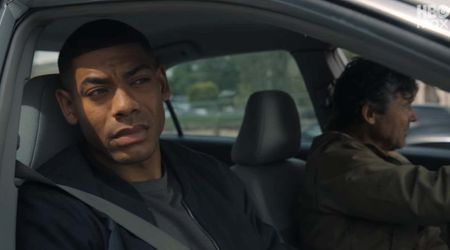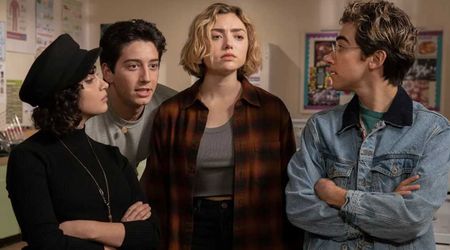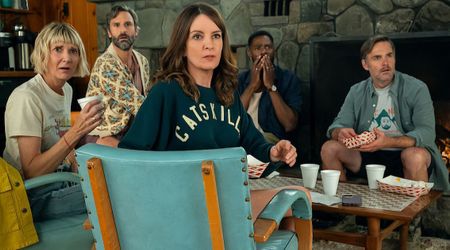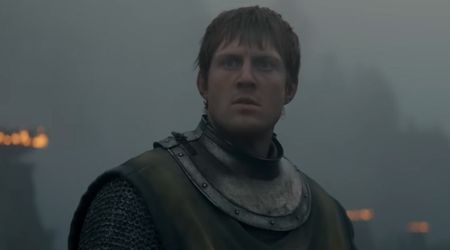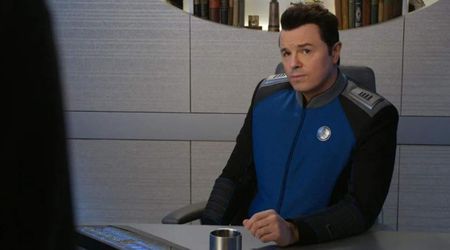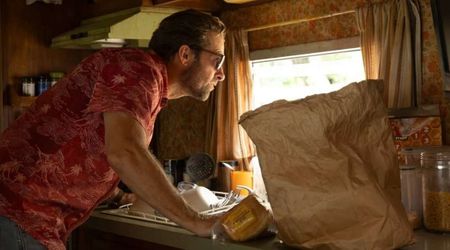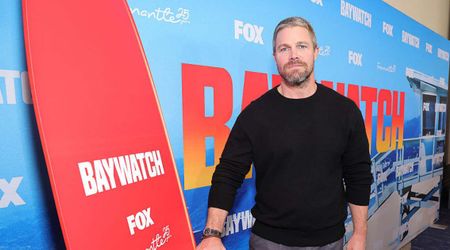Why did Warner Bros TV Group layoff 26% of it's workforce? Internet dubs it 'worst decision possible'

BURBANK, CALIFORNIA: Warner Bros Television Group laid off as many as 82 staffers on Tuesday. Per reports, this is 19% of the studio's workforce and the employees are from different verticals that include scripted, unscripted, and the animations division. In addition, the organization has also opted not to fill the 43 vacant positions tallying the total layoff to 26%. While there was no comment from WB TV Group at the time of writing, it was reported that chairman Channing Dungey explained the changes ringing into the teams.
It was also reported that Stage 13, a department focussed on short-form programming has called curtains down as well. Per a Variety report, the layoffs were expected as part of their cost-cutting move inside WB Discovery, which merged earlier this April.
RELATED ARTICLES
Change in Management: How the Discovery+ and HBO Max merger could affect your subscription
BIG news: Warner Bros. is shutting down its Writers/Directors Workshop and Stage 13 unit. Both are major paths for underrepresented voices in television. Big setback for Hollywood's diversity movement.
— Matthew Belloni (@MattBelloni) October 11, 2022
The outlet also obtained a copy of Dungey's statement from his employees. Here's the detailed account:
Team,
Today I write to you with sad news and a heavy heart. As many of you have already learned, some of our treasured colleagues will be leaving the company because of restructuring and realignment within our group. This was strictly a business decision, made as thoughtfully and compassionately as possible by studio leadership. But understanding that doesn’t make this moment any easier. These colleagues are more than just people with whom we’ve worked, they are part of our work family. We spend more time together than we do with most other people in our lives. Because of that, this loss is painful and difficult. For those impacted by the changes, I want you to know how grateful I am for your contributions – in some cases, spanning decades – and how deeply sorry I am.
There are a few changes happening within WBTVG that I would like to make specific note of here:
As part of the strategic realignment on the unscripted side, run by Mike Darnell, President, Warner Bros. Unscripted Television, we are making some changes aimed at finding synergies within the group, which includes Warner Horizon Unscripted Television, Telepictures, and Shed Media.
As you may have read yesterday, Brooke Karzen, head of Warner Horizon Unscripted Television, informed us in the last few weeks that she would like to try something new with her career after a highly successful 22-year run at the company. Brooke has been synonymous with The Bachelor brand for more than 20 years, overseeing the original show and developing The Bachelorette, Bachelor in Paradise, and many other extensions that have propelled The Bachelor into a global hit franchise. Her other successes include Emmy winner The Voice, Ellen’s Game of Games, and the Friends and Harry Potter reunion specials, to name just a few. Please join me in saluting Brooke for her tremendous accomplishments and wishing her the best in the future.
As a result of Brooke’s departure, Bridgette Theriault and Dan Sacks will now be leading Warner Horizon. We are combining some creative development and programming roles to work across both Warner Horizon and Telepictures, with David McGuire continuing to lead Telepictures. Lisa Shannon and Dan Peirson will continue to run Shed Media.
Working across all three unscripted divisions, Kevin Fortson continues to lead all aspects of physical production (including budgeting, scheduling, staffing, and more), and Matt Matzkin maintains oversight of all business affairs, legal, and finance for unscripted series.
In Animation, run by Sam Register, President, Warner Bros. Animation and Cartoon Network Studios, we are implementing a new streamlined structure in which the development and main production teams will now work across both Warner Bros. Animation and Cartoon Network Studios. The kids and family series development team will be led by Audrey Diehl, adult animation development will be led by Peter Girardi, and animated longform series development will be led by Sammy Perlmutter, with Bobbie Page leading the main production. This is an extension of the cross-studio teams that have already been in place for current programming, casting, legal and business affairs, and artist relations. Ed Adams will continue as Executive Vice President and General Manager.
On the scripted side, run by Brett Paul, President, Warner Bros. Television, our senior creative leadership team remains in place. Clancy Collins White continues to head up development, with Vicki Dummer as head of current programming. Adam Glick continues to serve as head of business affairs, Sue Palladino as head of production, and Mele Nagler as head of casting.
We will be closing Stage 13, which was founded in 2017 under the former Warner Bros. Digital Networks division as a studio for original digital shortform programming and has produced past series such as Special and It’s Bruno! for Netflix, Two Sentence Horror Stories for The CW/Netflix, and more. WBTV has already been supervising Stage 13 development and programming since 2020. Any existing Stage 13 projects in development will be absorbed within WBTV, which continues to be committed to finding new voices and providing opportunities for its richly diverse creative collaborators to tell authentic stories. I want to thank Diana Mogollón for her passionate leadership of Stage 13 and for the groundbreaking series that she and her team produced.
Also, following the conclusion of the current 2022–23 edition of the Warner Bros. Writers’ Workshop in April, we will be closing the Warner Bros. Television Workshop program, which includes both the Writers’ Workshop and the Directors’ Workshop. Both workshops have been instrumental in training the next generation of creative talent in the industry. While we will no longer have these formalized programs in place, we remain committed to developing and mentoring emerging talent and preparing them for careers in television.
As of this writing, all the impact conversations for WBTVG are complete. Out of respect to our colleagues, we will not be distributing a list of those impacted. Your direct managers will provide you with information about roles changing within specific groups. Your P&C partner will be available as well to address any questions or concerns. During this period of transition, please support each other, and be gentle with one another.
These are challenging times in the world at large, and a tumultuous time in our industry. For this kind of change to hit so close to home is incredibly difficult. But my hope is that these changes, made with an eye to a more focused business strategy, will strengthen and stabilize our company, maintain our great creative output, and better position us for continued future success.
Yet today we are losing members of our work family that we love, whose hard work has helped make our success possible, and for that I am truly sorry. I want everyone who is leaving to know that your contributions mattered, and the shows that you helped bring to life will always be part of the Warner Bros. Television Group legacy. Thank you for being part of our story.
With the deepest gratitude,
Channing
Internet reacts to WB TV Group slashing workforce
"Every single week Warner makes the worst decision possible, what a year for them," one of the tweets read. Actress Nathalie Bolt tweeted: "As a very lucky and blessed alumna of the directing workshop I am devastated for the upcoming and diverse writers and directors who will not get this vital stepping stone into the industry. I cannot stress enough how valuable and hardworking the facilitators of WBDW are!" The Stage 13 exit was devastating for some. "Agree. I would not have a TV writing career without this program. That was back in 2002, when the only diversity anyone was even mildly interested in was gender. But they trained me to know what the hell I was doing, and be effective on staff.."
"Or they didn’t really market those projects. Just looked at the list for Stage 13 and I’m an avid TV/movie viewer … never heard of any of them. But it’s all speculation, without data. None of us can really know why they did this or whether the works really failed," a comment said.
"I’m afraid the 2010s will be seen as a decade where underrepresented voices flourished, only to be crushed and silenced again in the 2020s," a tweet said. "It’s the entertainment industry. They need to produce entertainment. They’re preaching to us instead. Preaching is cheaper than coming up with entertainment. Of course, you don’t make any money either," a tweet reads. "Wow - my only hope is that they soon replace those programs with even bigger and better ones. But assuming that doesn't happen, this is a huge loss for the industry," one of the fans wrote.
Every single week Warner makes the worst decision possible, what a year for them
— Pearse Anderson (@PearseAnderson) October 11, 2022
As a very lucky and blessed alumna of the directing workshop I am devastated for the upcoming and diverse writers and directors who will not get this vital stepping stone into the industry. I cannot stress enough how valuable and hardworking the facilitators of WBDW are!
— Nathalie Boltt (@natboltt) October 11, 2022
Agree. I would not have a TV writing career without this program. That was back in 2002, when the only diversity anyone was even mildly interested in was gender. But they trained me to know what the hell I was doing, and be effective on staff.
— Stacy Rukeyser (@littleruke) October 11, 2022
Or they didn’t really market those projects. Just looked at the list for Stage 13 and I’m an avid TV/movie viewer … never heard of any of them. But it’s all speculation, without data. None of us can really know why they did this or whether the works really failed.
— Mariana Lopes (@MarianaLopes) October 11, 2022
I’m afraid the 2010s will be seen as a decade where underrepresented voices flourished, only to be crushed and silenced again in the 2020s
— Cine Suffragette (@CineSuffragette) October 11, 2022
It’s the entertainment industry. They need to produce entertainment. They’re preaching to us instead. Preaching is cheaper than coming up with entertainment. Of course you don’t make any money either.
— Art ♔ Soaps ♔ Royalty (@LadyFilmFatale) October 11, 2022
Wow - my only hope is that they soon replace those programs with even bigger and better ones. But assuming that doesn't happen, this is a huge loss for the industry.
— Danny Baram: Founding Member of #HalloweenTeam (@DannyBaram) October 11, 2022
This article contains remarks made on the Internet by individual people and organizations. MEAWW cannot confirm them independently and does not support claims or opinions being made online.

